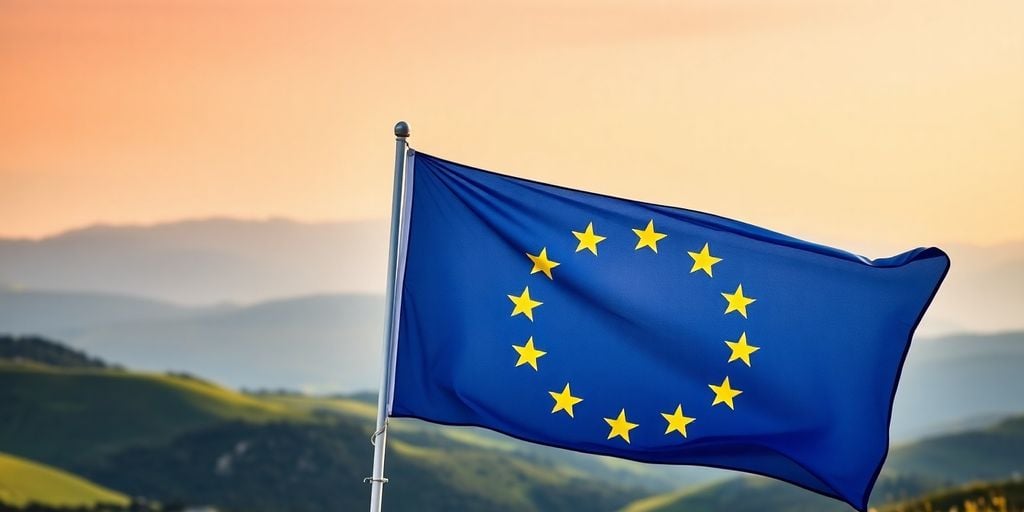Bridging the Trust Gap: Western Balkans’ EU Integration Efforts Under Scrutiny
A recent Atlantic Council event in Skopje, North Macedonia, convened experts to discuss the Western Balkans’ path toward European Union integration. The discussion centered on the EU’s new Growth Plan for the region, assessing its potential to foster cooperation and revitalize the enlargement process amidst geopolitical competition and existing skepticism.
Key Takeaways
- Growth Plan Potential: The EU’s Growth Plan is being evaluated for its capacity to deliver tangible benefits, cultivate political will, and counteract external influences in the Western Balkans.
- Diminishing Fearmongering: Leaders in the Western Balkans are finding it increasingly difficult to use fear and external threats to distract citizens from pressing socioeconomic issues like poverty, corruption, and depopulation.
- Shifting EU Stance: The EU appears to be adopting a firmer stance, moving away from a policy driven by fear of enlargement towards one that leverages its economic and geopolitical influence to demand reforms from aspiring member states.
- Data Deficit Hinders Investment: Accurate emissions data is crucial for unlocking significant investment in the Western Balkans’ energy sector, but progress on monitoring, reporting, and verification systems remains slow due to a lack of political will and institutional capacity.
- Transatlantic Cooperation Needed: A coordinated US-EU approach is vital for the Western Balkans’ stability and prosperity, focusing on democratic reforms, economic growth, and countering malign external influences.
Addressing Regional Challenges
Leaders in the Western Balkans have historically relied on narratives of external threats to maintain political control and distract from domestic issues. However, recent analyses suggest this strategy is losing its effectiveness as citizens prioritize economic concerns. Despite lingering security anxieties, particularly in the wake of Russia’s actions in Ukraine, the focus has shifted towards issues like the high cost of living and corruption.
The EU’s approach to enlargement is also evolving. While acknowledging the security implications of an unstable Western Balkans, the bloc is increasingly willing to set clear terms for accession, leveraging its significant economic leverage. This shift is seen as a positive development, potentially accelerating reforms in countries like Montenegro and Albania.
Unlocking Energy Investment
A significant hurdle for the Western Balkans’ energy transition and integration into the EU’s energy framework is the lack of accurate emissions data. While the EU has committed substantial funding and established frameworks like the Energy Community Treaty and the Green Agenda for the Western Balkans, the implementation of National Energy and Climate Plans (NECPs) and robust monitoring, reporting, and verification (MRVA) systems has been slow. Strengthening institutional capacity, securing consistent funding, and improving digital infrastructure are identified as key areas needing attention to attract the necessary private investment for the sector’s modernization.
A New Transatlantic Approach
Experts emphasize the need for a renewed and coordinated transatlantic strategy for the Western Balkans. This approach should prioritize democratic values, the rule of law, and anti-corruption efforts as prerequisites for economic progress. Scaling up economic engagement through increased investment, trade facilitation, and infrastructure development is also crucial, particularly to counter the growing influence of China and Russia in the region. A more active US role, complementing EU efforts, is seen as essential to address complex issues like the Serbia-Kosovo dialogue and to foster genuine stability and integration.
Sources
- How to bridge the trust gap to drive the Western Balkans’ EU integration, Atlantic Council.
- Fearmongering from Western Balkan leaders is no longer working on their citizens—or the EU, Atlantic Council.
- To unlock EU-Western Balkans energy investment, we first need accurate emissions data, CEPS.
- Working on a new transatlantic approach toward the Western Balkans, Atlantic Council.
- Fraud Prevention Actions at the borders with Western Balkans countries and Türkiye, European Commission.






